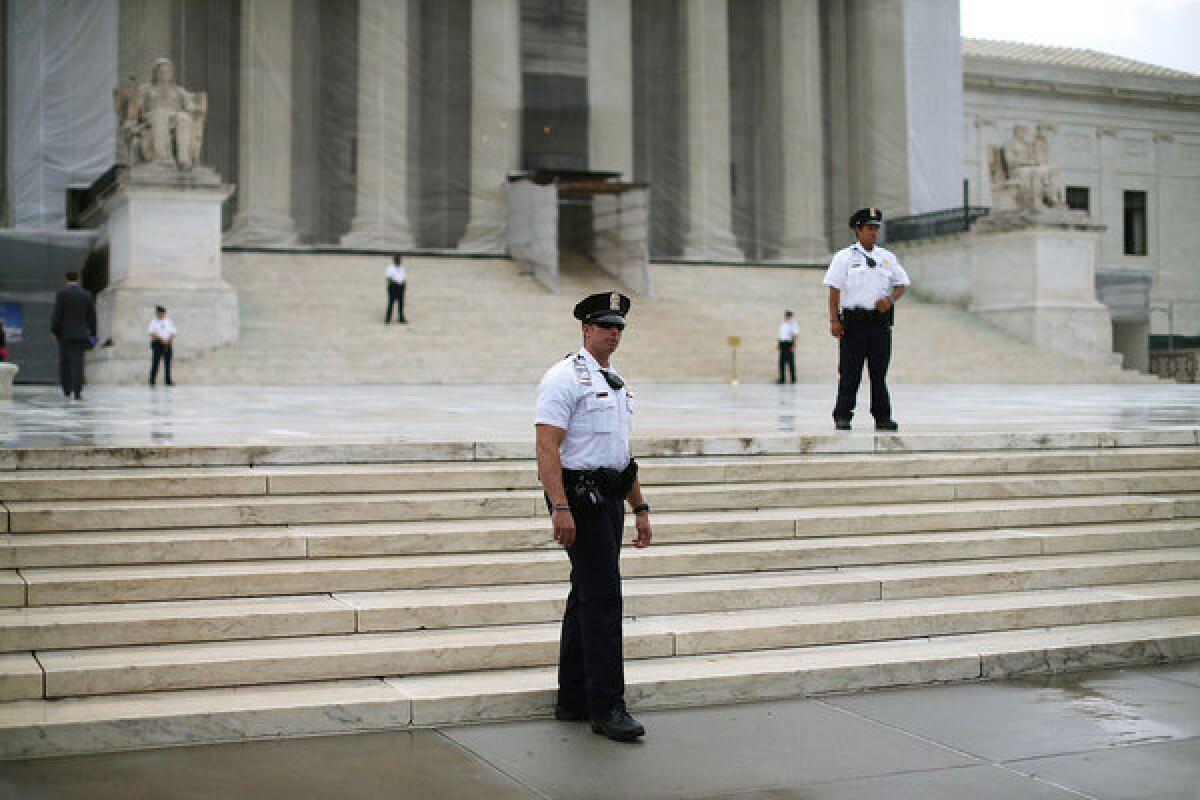Supreme Court orders new hearing for California raisin farmers

- Share via
WASHINGTON — The Supreme Court opened the door Monday for California raisin growers to challenge the constitutionality of a Depression-era farming law that requires them to keep part of their annual crop off the market.
In a 9-0 ruling, the justices cleared the way for Marvin and Laura Horne from Fresno to argue that this “mandatory reserve” program takes away their private property without just compensation.
“This is America, not a communist state,” they said upon filing their suit. They cited years in which producers were required to send 47% and 30% of their crop to a “reserve pool” controlled by a government-sponsored marketing board.
These raisins may be given to schools for their lunch programs or sold overseas, but the growers often receive little or nothing for these raisins, they said.
The high court’s ruling was procedural only. It sent the Hornes’ case back to the 9th Circuit Court of Appeals in San Francisco to decide whether this forced taking of part of their raisin crop is unconstitutional.
But if they were to prevail in the case, it could lead to a broad challenge to government-sponsored agricultural marketing orders.
The raisin board is one of several that was created under the Agricultural Marketing Agreement Act of 1937. It seeks to prop up prices for farm products. The court noted that there are similar orders that apply to a “vast array” of agricultural products, including milk as well as many fruits and vegetables.
Because a bumper crop can lead to a sharp drop in the price, the raisin board seeks to keep part of the crop off the market. The board, which is made up of growers and handlers, decides each year on how much should be set aside in the “reserve pool” of raisins.
The Hornes have grown raisins in the Central Valley since 1969, and they were disgruntled with the raisin marketing orders. They have been “a complete failure for growers, handlers and the U.S. Department of Agriculture. We will not relinquish ownership of our crop,” they said.
They tried several steps to get around the marketing order, but a USDA administrator brought an enforcement action against them in 2004. It resulted in them being hit with fines and assessments of nearly $600,000 for evading the marketing orders.
They went to federal court to challenge the fines and the marketing orders, and they argued the government was unconstitutionally taking their private property. The 5th Amendment says “private property (shall not) be taken for public use, without just compensation.”
They lost before a federal judge, and last year, the 9th Circuit Court ruled they first should have taken their claim to a federal claims court to seek a refund.
Stanford Law professor Michael McConnell filed their appeal in the Supreme Court and said the Hornes had been given an “intolerable” runaround by the courts in California.
The justices all agreed that Hornes had raised a plausible claim that their constitutional rights were violated, “and the Ninth Circuit erred in declining to adjudicate it.”
ALSO:
Judge rejects delay in Zimmerman’s trial in Trayvon Martin case
Man dies, four Boy Scouts rescued along Arizona-Nevada border
General suspended over handling of sexual-assault investigation
More to Read
Sign up for Essential California
The most important California stories and recommendations in your inbox every morning.
You may occasionally receive promotional content from the Los Angeles Times.











